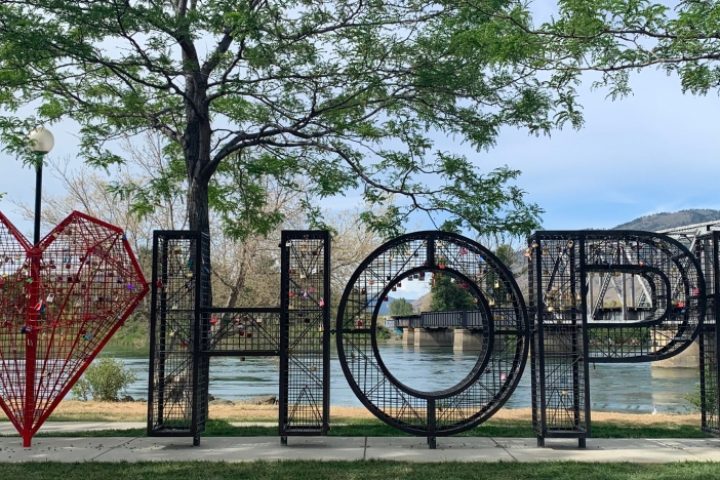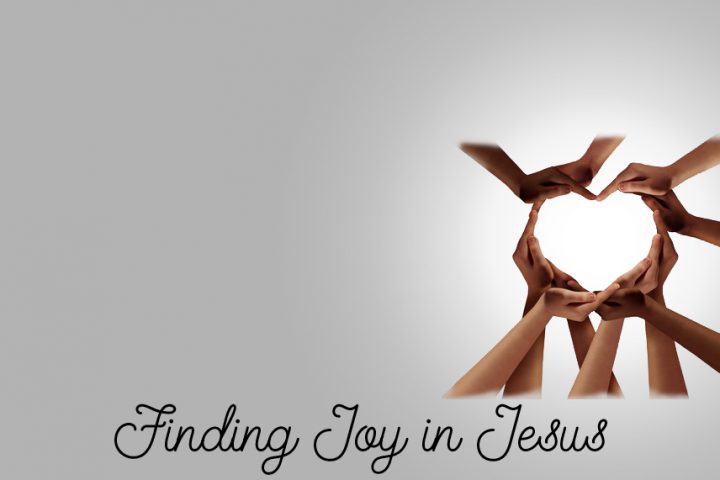Subscribe with iTunes, Google Podcasts Or, paste the feed URL into your favorite podcast reader (https://pbcc.org/feed/sermon-podcast/).
Life Together
1 Thessalonians 4:1-12
A Life Pleasing to God (1 Thess 4:1-12)
Being a Christian is not just about believing the right things about Jesus. It is about embarking on a lifelong journey of learning how to live a life that is pleasing to God, a life in which we are transformed into Christ-likeness through the Spirit whom God has put within us. We resume our earlier series in 1 Thessalonians. In the final two chapters Paul gives remedial instruction about several matters on which the young church is confused. In this Sunday’s text (4:1-12) he addresses sexuality and life together. A Christian sexual ethic presupposes spiritual formation. Life together as Christian community presupposes philadelphia, brotherly and sisterly love for one another. These are both hot-button topics today. Sadly the church often seems more conformed to the pattern of this world, rather than transformed by the renewing power of God in Christ through his Spirit.
A Future to Die For
Isaiah 65:17-25
In our four-part series Comfort O Comfort My People we have gone through three steps: First, we received God’s word of comfort (Isa 40:1-11). On the second week, we drew near to God to lament and listen (Isa 49:1-6). Last week we caught a vision for the blessings we receive in doing acts of justice (Isa 58:1-14). To conclude our series, the prophet strengthens our hope and stirs our imagination for a future to die for—in the words of Paul, “an eternal weight of glory” beyond all comparison” (2 Cor 4:17). My hope is that when your children or friends ask you what heaven is like, you’ll be able to reframe their question and light their hearts on fire with a vision of a new earth, which is crammed with the life of heaven.
Doing Justice, the Pathway to JOY
Isaiah 58:1-14
Our text this week opens with a heated exchange between God and his people. The people are disgruntled because they have been zealous in their ritual observances, but find that God no pays absolutely no attention. “Why do we fast, but you do not see?” Sound familiar? In response, God sounds an alarm from heaven, as if this is a life and death matter, therefore we better get it right. There is gaping disconnect between their “religion” and their relationships, an insidious hypocrisy that perverts righteousness for profit and destroys lives. In relentless severity God exposes their “religion” for what it really is. What happens next is not what we would expect. Instead of thundering down judgment, God shows them the road home and the manifold blessings that pour forth when his people join him in doing the holy work of justice. Read his appeal (vv.6-14) out load before Sunday and allow the repetitive cadences to wash over your soul with increasing intensity. This is God’s “I have a dream!” speech. May it stir our hearts and awaken us from sleep to “ride on the heights of the earth” (58:14). After the message we will partake of the Lord’s table together. So have the elements ready before we start. The love of Christ be with you all.
Draw Near, Lament and Listen
Isaiah 49:1-13
In the first message (Isaiah 40:1-11) of our series, “Comfort O Comfort My People,” God gave voice to his unshakable commitment to rescue his people from exile and, in so doing, set in motion the salvation of the whole world. This week the good news will continue, but to embrace it fully we will have to learn to do what our culture fears doing—to lament. The reason they are afraid, suggests Tom Wright, “is because it seems to be afraid of the fear itself, frightened that even to name grief will be to collapse forever. We have keep going, we tell ourselves, we have to be strong. Strong, yes. Strong like Jesus who wept at the tomb of his friend. Strong like the Spirit who raised Jesus from the dead and will give life to our mortal bodies too — but who, right now, is pleading for us with groanings too deep for words.” If we embrace the biblical pattern of lament in its bold honesty and audacious trust, we will discover as the psalmists, prophets and Jesus found, hidden treasures of God’s presence that surpass understanding.
Receive God’s Word of Comfort
Isaiah 40:1-2, 27-31, 43:1-7
The pandemic continues unabated and it’s not going anywhere soon. For many us, it is getting personal, as the virus has infected co-workers, friends and/or family members. Along with increasing human, economic and social costs, many are experiencing a crisis in their faith. As Tom Wright suggests, “Tears, locked doors and doubt…sum up a lot of where we are globally.” Living lives in fear and isolation erodes our faith, darkens our hope and paralyzes our love. The length and severity of the pandemic would have shaken my soul, had I not been teaching a course on Isaiah 40-66 for the last 25 weeks. The prophet’s words address the greatest disaster in the Hebrew scriptures, the Babylonian exile. In midst of unending darkness and despair, God’s words blaze with light, comfort, healing and hope. As we immersed ourselves in Isaiah’s oratorio, we experienced a renewal of our faith, a strengthening of our hope and a new flame for our love. For the next four weeks we will be exploring significant themes in these chapters in the hope of giving you a prophetic imagination to see how God is at work in the midst of the darkness.
Where Does Your Confidence Lie?
Philippians 3:1-11
Our society places so much emphasis on having an impressive resume, with advanced degrees, a position at a prestigious company, and personal accomplishments. Even in our faith circles, there may be a subtle (or not so subtle) push for similar accomplishments: a master’s degree in theology, leading bible studies, memorizing Scripture. While none of these are negative in their own right, they may lead us to become prideful and to boast in ourselves. The apostle Paul exhorts us in Phil 3:7-11 to place no confidence in those worldly aspects, but rather let our confidence be rooted in the Lord, in knowing Him and being found in Him. God Himself tells us in Jeremiah 9:24: “let him who boasts boast in this, that he understands and knows me”. In what can you boast? Where does your confidence lie?
Faithful Co-Laborers
Philippians 2:19-30
In our journey through Paul’s letter to the Philippians, we explored the glorious Christ Hymn in Phil 2:5-11 that illustrated Jesus’ divinity and humanity. This week, we look at two faithful servants of the Lord that truly followed the example of Jesus from the Christ Hymn. They were compassionate and committed, submissive and sacrificial. They can be good models for us as followers of Jesus. Or more accurately, they point to the true model for us: Jesus Christ. We are to imitate Christ by adapting His mindset in the manner we relate to each other. This is what Paul exhorts us in Phil 2:5-8. Meditate on this passage this week and ask the Holy Spirit to transform us into Christ-imitators.
In your relationships with one another, have the same mindset as Christ Jesus: Who, being in very nature God, did not consider equality with God something to be used to his own advantage; rather, he made himself nothing by taking the very nature of a servant, being made in human likeness. And being found in appearance as a man, he humbled himself by becoming obedient to death—even death on a cross!
Shining Like Stars
Philippians 2:12-18
This week we’ll see Paul call the Philippian church to shine like stars in the midst of a twisted and broken world. It seems an overwhelming task until we realize that it is God at work in us who provides both the desire and the ability to do so. The call is, therefore, to participate in the work that God is doing in and through us. So what would it look like for us to shine like stars in our current circumstances?
A Different Kind of God
Philippians 2:5-11
We continue our studies this Sunday in the book of Philippians. And, we come to holy ground. In this text, known as a hymn to Christ, we find a different kind of God. Into a world where “gods” are expected to use absolute power, power to advance themselves and power to exploit others, we find these extraordinary words. Here, we find a God who seeks to not advantage himself, but to humble himself in obedient servanthood. This God becomes defined by a cradle, a cloth (John 13) and a cross, giving himself away in self-giving love. And what are we to do with this good news? Paul invites us to model this kind of love to a desperate and hurting world.
Unity! Unity! Unity!
Philippians 2:1-4
As we return to Paul’s friendship letter to the Philippian church, we see Paul asking for just one thing from them – Unity! In an individualistic society, we highly value our right to our own opinion and we definitely don’t want to be brainwashed. So what is this Unity? Is it even possible? And if it is possible, is it even something we want?
The Living Water
John 4:1-26
This week we come to one of John’s famous passages, where Jesus meets a Samaritan woman at a well. She is an outcast, Samaritan and woman. He is a rabbi (even God), Jew and man. Throughout their conversation, we find that she is empty, her water pot symbolizing her emptiness. In the same way she needs to continually fill her water pot with water, she is continually filling her life with relationships that ultimately do not satisfy. And, what does Jesus do? He jumps over every single dividing wall between him and her to love her, then offers her living water that will satisfy her deepest thirsts. “Come and see” this life-giving text via live-stream this Sunday.
Friend of the Bridegroom
John 3:22-36
After that deeply theological conversation with Nicodemus, Jesus heads back into the Judean wilderness where John is baptizing. And, we hear John’s last speech in this Gospel. He joyfully says he is not the bridegroom; he is the friend of the bridegroom. Jesus, the one from above, is the bridegroom (implying he is God), while those who receive him become his bride (implying a new people of God). For John, as the friend of the bridegroom, his job was to connect the bride to the bridegroom. When he does his job, he can joyfully fade out of the picture, an attitude captured in his final statement, “He must increase, but I must decrease” (3:30). What if we were to live by that same attitude as well?



